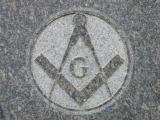
Masonic Order is open to men age 21 and older (or 18 years if the children of Masons) of any ethnic and religious background of good reputation, and a personal desire to become a Freemason.
The essential condition for admission is a belief in the immortality of the soul and in Divinity, generically called the Great Architect of the Universe.
One of Masonry's traditions is that we do not solicit members. Men must seek membership on their own initiative. When you're ready to join, you can complete the Request to join the Masonic Order form and someone will contact you regarding membership.